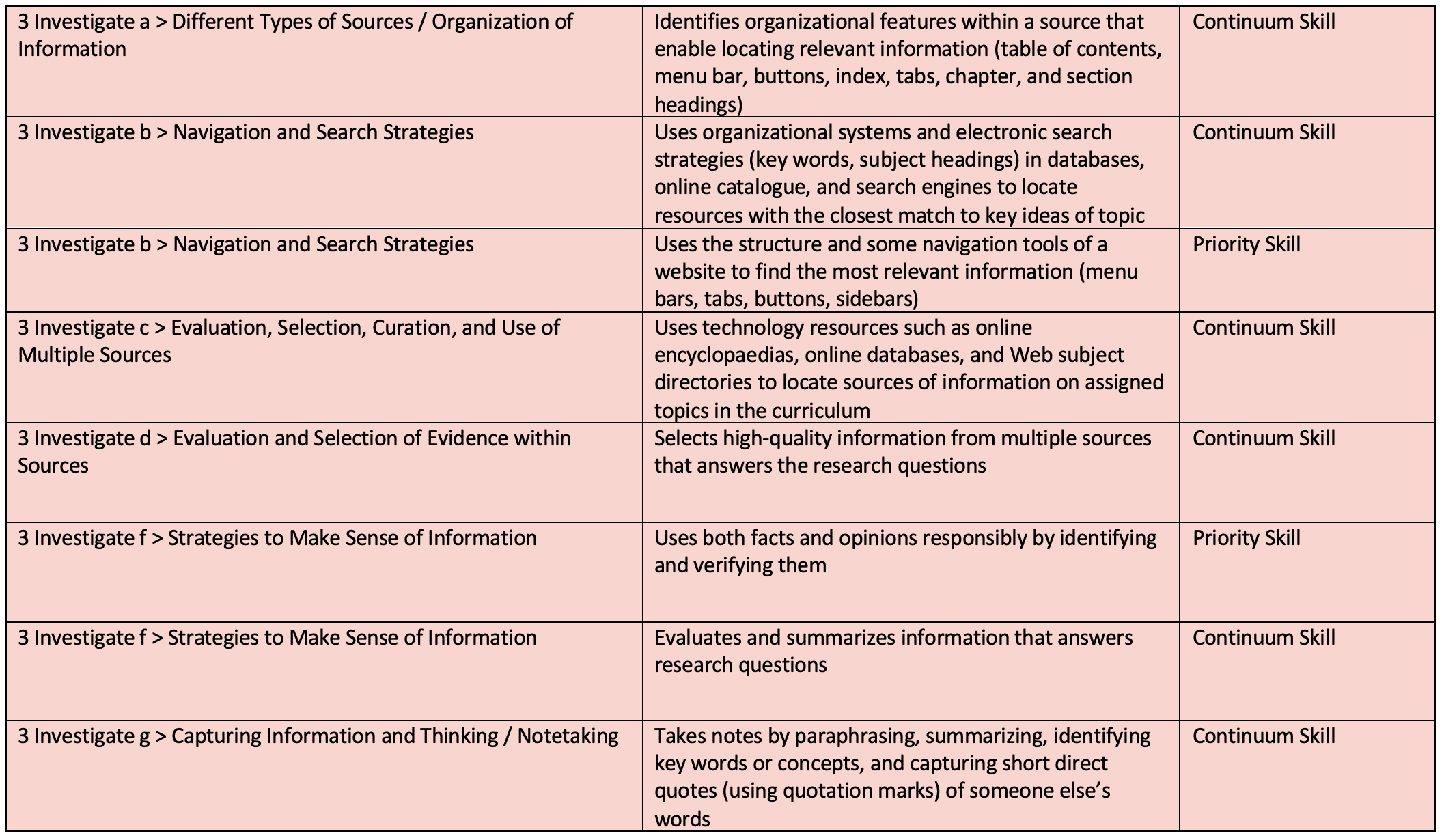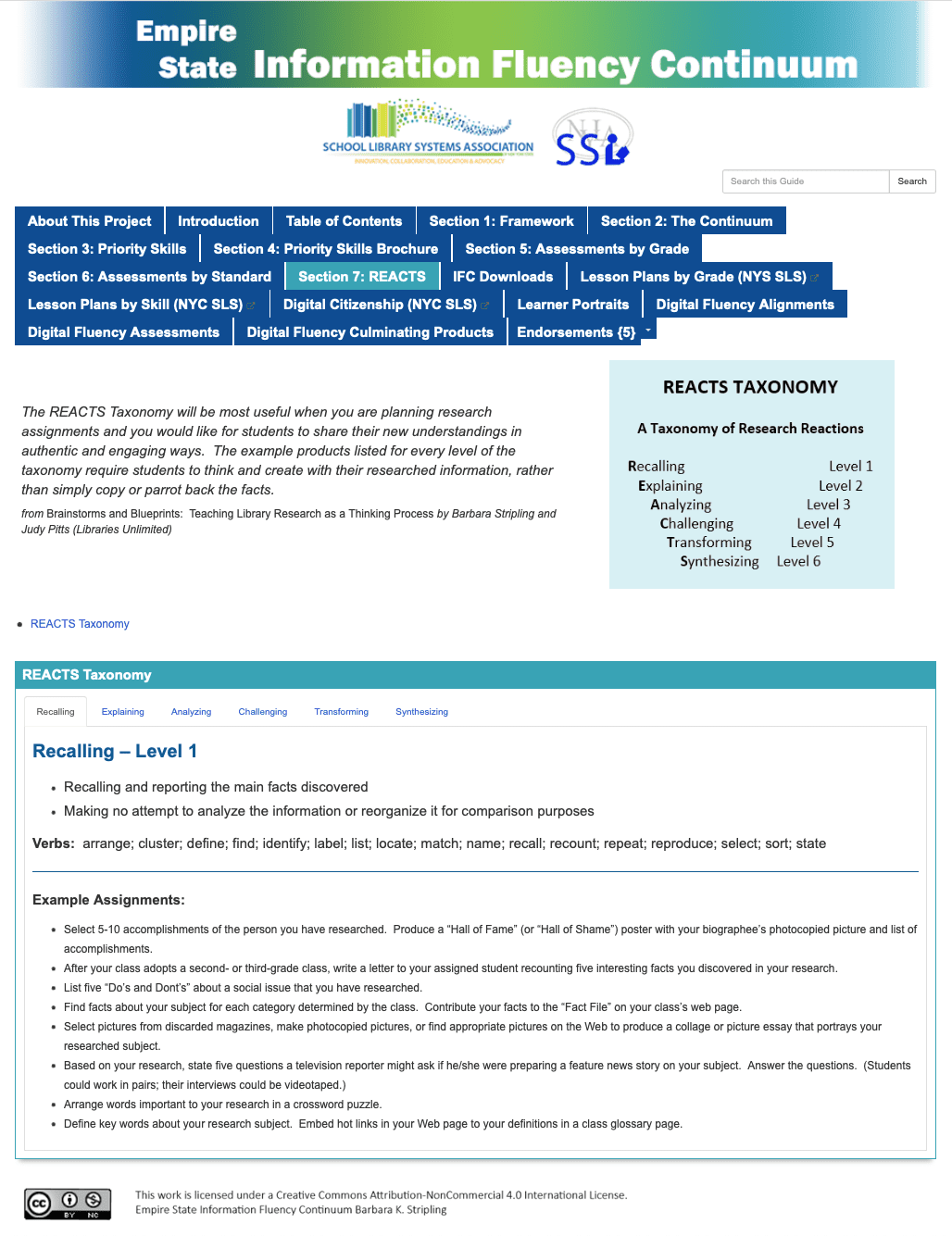Research Shakespeare’s Life – Help with a research question
Home › Forums › Inquiry and resource design › Research Shakespeare’s Life – Help with a research question
- This topic has 8 replies, 4 voices, and was last updated 3 years, 4 months ago by
 Darryl Toerien.
Darryl Toerien.
-
AuthorPosts
-
14th October 2022 at 10:17 am #79151
I am posting this on behalf of Rachel, a school librarian who has the opportunity to help with a research project. I thought it would be a useful conversation for us all to have here about how a great question can lead to a much better experience for our students.
Students are often asked to research something without much thought about what is expected of them. An open question like “find out about Shakespeare’s life” just leads to lots of information about Shakespeare but what does the student learn? Can you help Rachel come up with a great question and help us all learn to think more about how we can create good questions?
14th October 2022 at 2:39 pm #79152Thanks Elizabeth – it’s always good to bat ideas around here as I’m sure Rachel’s not the only one considering a Shakespeare inquiry. However, as always, context is vital. The kinds of questions that might work for sixth form are not the same as those you might use with Year 3 so we need to know the age group. It also matters how long Rachel has to deliver the inquiry and whether there is any more subject context (are they studying a particular play, for example? What are the teacher’s learning objectives for the unit?). Emma did that super Masquerade inquiry based on Much Ado About Nothing last year, for example, showing how well a specifically context driven inquiry can work.
As an example, our Year 12 are doing a six week inquiry skills course at the moment (more on that another time) and as part of that they have each come up with a very simple inquiry question that they can practise their skills on over the six weeks. We only have half an hour’s teaching time and half an hour’s homework time each week and the purpose of the course is both to inspire a spirit of inquiry that can give them a boost as they step up into their A-level years, as well as equipping them with a range of key skills that will benefit them throughout their sixth form life, so realistically there isn’t a lot of time for them to spend on the actual inquiry. One of the students is interested in Shakespeare and has chosen ‘Were all of Shakespeare’s plays a success?’, which on one level is perhaps a simple yes-no question, but he is exploring how successful they were and how differently they were received over different eras and why, and it is turing into quite an interesting inquiry.
On a different level, depending on the play they are studying, it could be interesting to look at something like ‘How is Shakespeare’s life reflected in his plays?’ (or maybe even ‘Would Shakespeare’s audience regcognise themselves and their world in his plays?’). But a lot depends on the level of the class and the time they have – and whether they are studying a Tragedy, a Comedy or a History play! Do let us know if you have any more details.
14th October 2022 at 4:57 pm #79157Hi Jenny, thanks for your response. How silly of me not to think further than the question itself… context certainly makes all the difference. I will let Rachel know that you have responded and see if she will come on and give more details. Hope you are well!
14th October 2022 at 7:45 pm #79160Hi all,
Thanks for the input, it’s great to get some other thoughts on this! So, a bit more context. It is a year 8 project that runs over 4/5 weeks in the library with each weekly lesson being 35 mins. What has been done previously is work sheets given out with questions about Shakespeares life, simple short answers. They have to use the books to look up the answers. There also seems to be a sheet on looking at the Globe theatre. There is a page of links which I think some are out of date now. When I asked the head of English what the learning objectives are, she just said background context about Shakespeare so not much to go on. The plays they are studying are either Taming of the Shrew or Merchant of Venice depending on their teachers preference. I did briefly speak to one of the teachers today and she said finding out about the British Jews (merchant of venice group) would be helpful.
Hope this helps!
Thanks,
Rachel
15th October 2022 at 2:45 pm #79166Hi Rachel. Thanks for the context – makes all the difference! Those are two of Shakespeare’s most offensive plays (viewed from some perspectives – The Merchant of Venice gives a platform to antisemitic stereotypes and The Taming of the Shrew certainly appears on the surface to be condoning and perhaps even promoting domestic abuse, although there are various arguments surrounding this) which gives an excellent starting point linking the two. How about a very open question, referring to the modern phenomenon of the cancel culture, like “Should Shakespeare be cancelled?”. In the first lesson students could look at the idea of “cancelling” someone for their expressed beliefs or behaviour, and then look at quotes from the play they are studying and discuss why in modern society these might be considered problematic. (e.g. Kanye West and Gina Carano (from The Mandollorian) are relatively recent examples of people who have been sidelined for expressing perceived antisemitic views, and Jonny Depp for widely publicised allegations of domestic abuse. Obviously sensitive topics for a group as young as Y8 so would need to be very careful how far down this road discussions were allowed to go).
They could spend the bulk of the inquiry looking into the context of the plays – for TToTS they would need to focus specifically on the lives of women in Shakespeare’s time, and for TMoV the attitudes to Jewish people (who were not even legally allowed to live in England at that time – at a quick glance this is a really interesting article that lays out some of the arguments for background. It is from a pro-Jewish website rated right-biased and mixed for factual reporting by media bias / fact check due to the prominence it gives to religious stories rather than scientific ones. Not really an issue in this particular case.). Worth noting in particular that TMoV has been used since Shakespeare’s time to promote antisemitic views e.g. in Nazi Germany, but was expressing common sentiments for the time it was produced. I suspect most children (and some adults) are largely unaware of the scale of Jewish persecution in Europe, particularly in medieval times (interesting but depressing article here), and I think there is a tendency in the UK to view the holocaust as a German problem where the Allies came riding to the rescue. After all, ‘it could never happen here’. An understanding that Jewish persecution was widespread throughout Europe (including the UK) from about the 4th Century onwards would be healthy, and sets children up well for subsequent study of WW2 (which often happens in History in years 9 and/or 10 in many schools). I know I’m straying off the point a bit, but inquiry certainly has a role in promoting social and cultural awareness and preparing children to become responsible, active and thoughtful members of society, alongside its role in developing both curricular understanding and skills. Some interesting tie-ins possible here for History, Religious Studies and PSHE…
Both these contextual studies would require students to develop a background knowledge of Shakespeare’s time (when was he writing? What were the prevailing social and cultural attitudes at that time?) so would satisfy that part of the objectives. Probably the only thing you would lose is a study of The Globe Theatre, but that would be easy to do somewhere else in a different, perhaps more meaningful, way (tie in with Drama maybe?).
Express? Lots of options, but you or the English teacher could maybe write a letter from a ‘parent’ to the headteacher objecting to their child being taught one of these plays because they find the attitudes in it offensive and then ask the pupils to write a letter of response from the headteacher explaining why they think the plays should be taught and what they would need to do to address the issues in the play. Good opportunity to teach formal letter writing skills too.
I’m just going to have a look at the FOSIL skills framework to see which particular Y8 (Grade 7) skills you could address through an inquiry like this. Lots of critical analysis I think.
Would love to hear others’ ideas for inquiry questions. I’ve taken it in a certain direction, but there are lots of other ways to go.
15th October 2022 at 3:07 pm #79171These are the Y8 FOSIL skills that I would say relate particularly well to this inquiry (but you wouldn’t need to work on all of them – just choose 2 or 3 that you think should be a particular focus for this inquiry):



 15th October 2022 at 5:14 pm #79172
15th October 2022 at 5:14 pm #79172Wow, Jenny I am blown away, these are amazing ideas! I am so excited by this and will definitely share it with the English team. I’m looking long term for redesigning but if I can start sowing some seeds this next term I reckon for next year we can really get into some interesting inquiry.
16th October 2022 at 8:42 am #79173Super – so pleased we could help Rachel. It’s always so much easier batting ideas around with others. Being a librarian can be quite lonely in that sense. Our real value in schools is as inquiry experts in the broadest sense of the world – helping children to make sense of the world they live in thorugh informational and recreational reading – and the best way to develop that is in converstaion and in community. Some of the most successful inquiries I have been involved with have been developed over long periods because that leaves more time for collaboration both within and outside school. Do keep us posted – I’m really excited to hear about what you develop in collaboration with the English team.
16th October 2022 at 11:31 am #79177It occurs to me that the REACTS Taxonomy “of thoughtful reactions to research” developed by Barbara Stripling and Judy Pitts (available here on the Empire State Information Fluency Continuum website and see below) might, more broadly, be a useful tool when thinking about how to formulate/ help formulate inquiry questions, given year group, subject, learning outcomes (for subject and inquiry skills), etc. I will also make this available via FOSIL Resources, when possible.

-
AuthorPosts
- You must be logged in to reply to this topic.


